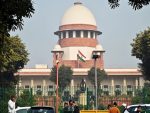
RBI board warned of noteban’s short-term impact on economy; no material effect on black money
Team Udayavani, Mar 11, 2019, 10:50 AM IST

New Delhi: The RBI board, which included the present Governor Shaktikanta Das as a director, had warned of short-term negative impact of demonetisation on the country’s economic growth and observed that the unprecedented move will not have any material impact on tackling the black money menace.
The board, according to minutes of the meeting revealed by the central bank in an RTI reply, had met just two-and-a-half hours before Prime Minister Narendra Modi in an address to the nation announced the demonetisation decision on November 8, 2016.
Curbing black money was one of the prime objectives of the shock move to junk old Rs 500 and 1,000 notes, which saw 86 per cent of high value currency going out of circulation.
The minutes of the crucial board meeting, which approved the government’s request for demonetisation, recorded the presence of the then RBI Governor Urjit Patel and the then economic Affairs Secretary Shaktikanta Das. Others at the board meeting included the then Financial Services Secretary Anjuli Chib Duggal, and RBI deputy governors R Gandhi and S S Mundra. Both Gandhi and Mundra are not part of the board now, while Das was appointed as the RBI governor in December 2018.
“It is a commendable measure but will have short-term negative effect on GDP for the current year,” as per the minutes posted by RTI activist Venkatesh Nayak on the website of Commonwealth Human Rights Initiative.
“Most of the black money is held not in the form of cash but in the form of real sector assets such as gold or real estate and that this move would not have a material impact on those assets,” the board observed in its 561st meeting held in Delhi.
The prime minister had announced demonetisation of high-value currency notes with the aim to curb the black money, check counterfeit currency and stop terror finance among others.
While any incidence of counterfeiting is a concern, the minutes said, Rs 400 crore as a percentage of the total quantum of currency in circulation in the country is not very significant.
Of the Rs 15.41 lakh crore worth Rs 500 and Rs 1,000 notes in circulation on November 8, 2016, notes worth Rs 15.31 lakh crore came back during the 50-day window for depositing junk notes given to resident Indians and till June 2017 for non-resident Indians.
Only Rs 10,720 crore of the junked currency notes did not return to the banking system, rest 99.9 per cent was deposited raising question mark over the government’s effort of curbing black money through the demonetisation.
The minutes pointed that “the growth rate of economy mentioned is the real rate while the growth in currency in circulation is nominal. Adjusted for inflation, the difference may not be so stark. Hence, this argument does not adequately support the recommendation (in favour of demonetisation)”.
The government has always maintained that the decision did not have much impact on the GDP growth.
The board was assured that the government would take mitigating measures to contain the use of cash, it said.
In another reply, the RBI has said it has no data on the old 500 and 1,000 rupee notes used to pay for utility bills such as fuel at petrol pumps — payments that are anonymous and are believed to have formed a good part of the demonetised currency that returned to the banking system.
The government had allowed the exchange of the junked notes as well as they being used for payment of utility bills for 23 services.
Both old 500 and 1,000 rupee notes could be used at government hospitals, railway ticketing, public transport, airline ticketing at airports, milk booths, crematoria/burial grounds, petrol pumps, metro rail tickets, purchase of medicines on doctor prescription from the government and private pharmacies, LPG gas cylinders, railway catering, electricity and water bills, ASI monument entry tickets and highway toll.
On November 25, 2016, the exchange of old notes was stopped and the government allowed the use of only old 500 rupee notes at these utilities till December 15, 2016. The government, however, stopped the use of even this currency at petrol pumps and for the purchase of air tickets at airports abruptly with effect from December 2, 2016, after reports that they were becoming fronts for laundering of old currency notes.
Udayavani is now on Telegram. Click here to join our channel and stay updated with the latest news.
Top News
Related Articles More

Vipul Organics participates in American Coatings Show in USA

Sensex tumbles 700 points amid broad-based selloff; Nifty slips from record highs

SEBI Issues Show Cause Notice to Six Adani Group Companies

Godrej Group stocks witness mixed trends in early trade

DGCA deregisters bankrupt Go First’s 54 planes
MUST WATCH
Latest Additions

K’taka water crisis: NGT seeks cricket association’s reply on water sources in Chinnaswamy stadium

Sexual abuse allegations: More trouble brewing for Revanna, Prajwal

Rohith Vemula not a Dalit, says police in closure report

Malaria infection may accelerate ageing process: Study

Bengaluru to host film festival in honour of Guru Dutt

























